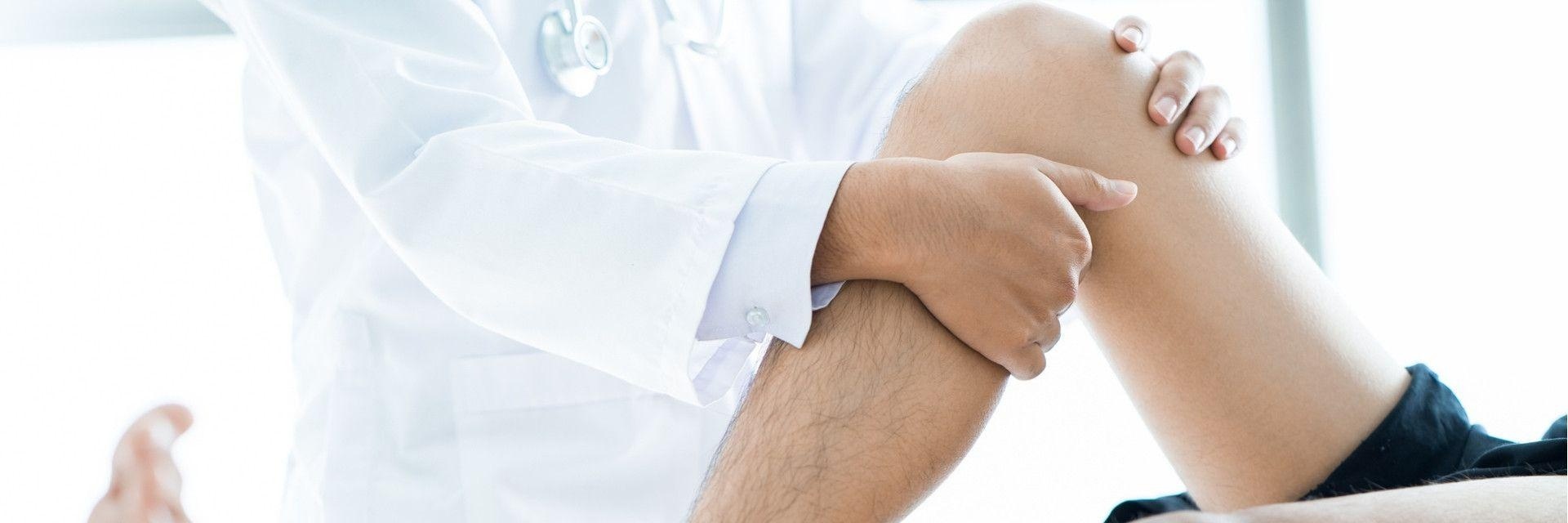July 28th, 2022
What Does it Mean When I Hear a Pop in My Knee?

Hearing popping in your knee can be a concerning sound, but it's not always as serious as it may seem. Understanding the anatomy of your knee and why it pops can help you determine whether or not you need medical attention. Knowing when to seek medical attention can save you time and further damage to your knee.
Anatomy of the knee
To better understand the causes and treatments for knee popping, it's best to have an idea of the knee anatomy. The knee is the largest joint in the body. It includes the femur, tibia, and patella, as well as multiple ligaments. The joint is made up of four major ligaments–the ACL, PCL, MCL, and LCL. These ligaments areinjury-prone, with over 200,000 ACL injuries each year.
In addition, there are three compartments where the bones and ligaments come together. The medial, lateral, and patellofemoral compartments all aid in distributing weight load, stabilizing the knee, absorbing shock, and helping the knee move in different directions.
The knee is a hinge joint, meaning it moves forward and backward. It has limited movement from side to side. When the knee does move side to side, it usually causes an injury.
What does knee popping mean?
Knee popping is not always cause for alarm. Popping occurs when carbon dioxide mixes with the joint synovial fluid creating a bubble. When this bubble bursts, it makes a popping noise. This is the same gas bubble that pops when you crack your knuckles.
This popping is not harmful or unhealthy unless other symptoms accompany it. If your popping is followed by grating noises, pain, friction, or loss of mobility, you are likely experiencing some type of injury that needs to be treated.
What causes knee popping
Knee popping can occur in multiple ways, such as a direct injury like a blow to the knee during sports or other physical activity. While knee issues can occur from blunt injuries, it's also common to experience a knee injury due to overuse or improper use of your knee. For example, repeated motions using the knee or incorrect exercise and poor form can result in damage to the knee and the surrounding muscles.
Some of the most common knee injuries are:
Torn meniscus: A tear in the meniscus occurs when you overextend or over-rotate your knee. It's common in sports or situations like moving heavy objects and bending down frequently. Torn meniscus symptoms include stiffness, intense swelling, loss of mobility, and popping when using the joint.
Cartilage injury: Damaged cartilage can be a result of direct impact to the knee, but more commonly occurs through general wear and tear or lack of movement. Cartilage injuries can usually be treated with non-operative methods. Symptoms of damaged cartilage include loss of mobility, inflammation, and knee popping with movement.
Patellar tendon tear: These tears commonly occur through overuse and repetitive strain. The tendons connected to the kneecap and shin bone wear down over time and can cause pain. Symptoms of a patellar tendon tear include tenderness around the area, knee popping when walking, cramping, and an indentation to the damaged area.
Torn anterior cruciate ligament (ACL): An ACL tear is the most common and painful knee injury. It occurs through a sudden stop or change in direction while moving, a direct impact, or overstretching of the knee. Symptoms of a torn ACL include a popping when the injury occurs, intense pain, discomfort and popping when walking, and inability to put weight on the leg.
Treatments for popping in the knee
Your treatment options will depend on when it started, how severe it is, and how the injury occurred. The three most common treatments for knee popping that is accompanied by pain or discomfort are:
Physical therapy: This treatment method is often used post-operative or for injuries that don't involve a break or tear. Physical therapy will help strengthen the knee muscles, making your knees stronger and more stable. Physical therapy will usually last a few weeks until the knee is strong enough for you to continue doing exercises at home.
Injections: There are multiple medications that can be injected directly into your knee to help relieve popping accompanied by pain. Corticosteroids, hyaluronic acid, and platelet-rich plasma are all pain-relieving injectables that can be put into the knee to lessen pain temporarily. These injections can not be used long-term but can help temporarily relieve pain, especially in combination with physical therapy.
Surgery: In more severe cases, your injury may require surgery. This can include a partial or total knee replacement, depending on the severity of the damage. With new technology, orthopedic knee surgeons no longer have to perform an invasive procedure, meaning you'll likely be up and walking that day. Surgery is followed up with a few weeks of physical therapy to help strengthen the knee.
The only way to get proper treatment is to get a diagnosis from an orthopedic knee specialist. It's important to make an appointment sooner rather than later to avoid worsening your injury and resorting to more invasive options.
When to seek treatment
Knee popping alone does not require immediate medical attention. However, if the following symptoms accompany your knee popping, you should make an appointment with an orthopedic specialist.
You are likely experiencing a knee injury if you have:
consistent knee popping for over a week
popping accompanied by knee pain
Stiffness or swelling around the knee
Loss of mobility
Inability to put weight on the leg
If you are experiencing any of these symptoms, make an appointment online or by phone at 1-800-321-9999. A Rothman Orthopaedic specialist is ready to help treat your knee injury and get you back on your feet pain-free.


